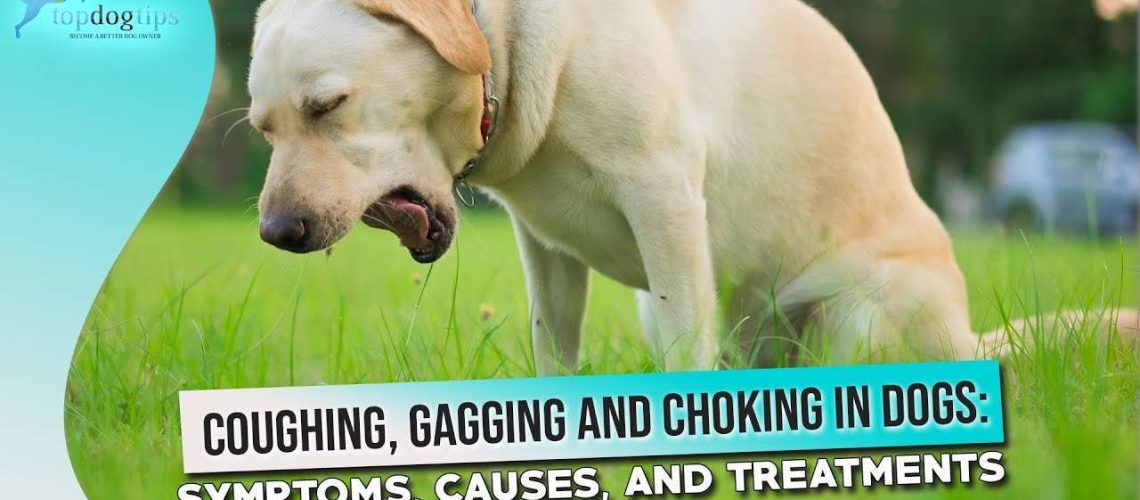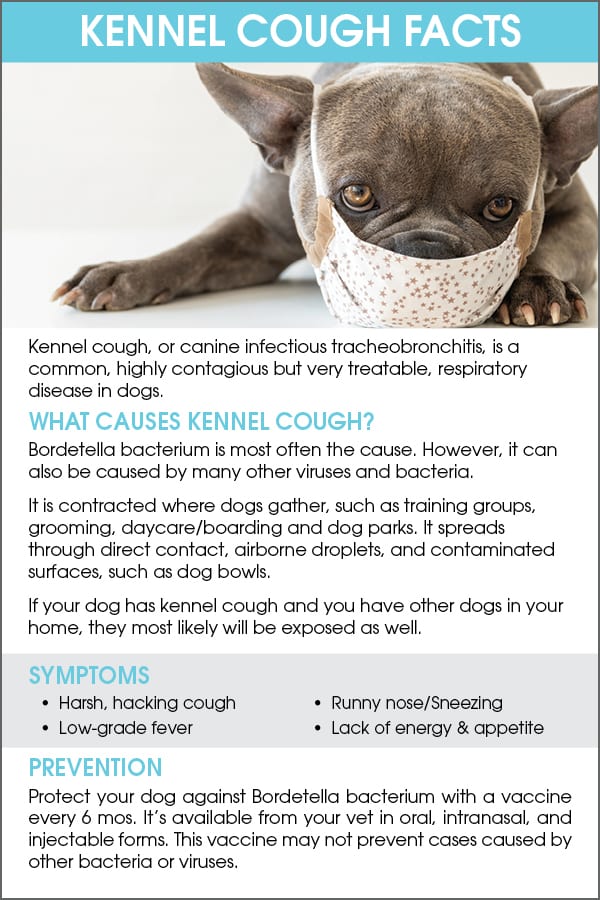Key Takeaways:
- Coughing and gagging in dogs can be caused by a variety of factors, including respiratory infections, allergies, heart disease, or foreign objects lodged in the throat.
- If your dog is coughing and gagging persistently or if other symptoms such as difficulty breathing or loss of appetite are present, it is important to consult a veterinarian for proper diagnosis and treatment.
- In some cases, coughing and gagging in dogs may be a sign of a more serious underlying condition such as kennel cough or congestive heart failure.
- It is important to keep your dog's environment clean and free from potential irritants that could trigger coughing or gagging episodes.
- Regular veterinary check-ups, vaccinations, and preventive measures such as heartworm medication can help reduce the risk of respiratory infections and related symptoms in dogs.
Are you concerned about your furry friend's health? Wondering why your dog is coughing and gagging? Well, you're in the right place! Understanding the reasons behind these symptoms can not only alleviate your worries but also ensure your dog's well-being. Imagine being able to identify potential health issues early on, leading to prompt treatment and a happier, healthier pup. In fact, did you know that 27% of dogs experience respiratory problems at some point in their lives? So, whether it's a minor irritation or something more serious, let's dive into the world of dog coughing and gagging together. By the end of this article, you'll have all the knowledge you need to keep your four-legged companion in tip-top shape. Let's get started!
Possible Reasons for Your Dog's Coughing and Gagging
When your dog starts coughing and gagging, it can be concerning. There are several possible reasons for this behavior. One common cause is kennel cough, which is a highly contagious respiratory infection that dogs can pick up from other dogs in places like boarding facilities or dog parks. Another possibility is heartworm disease, which is transmitted through mosquito bites and can lead to coughing as well as other symptoms like fatigue and weight loss.
Allergies can also cause your dog to cough and gag. Just like humans, dogs can have allergies to things like pollen, dust mites, or certain foods. These allergens can irritate their airways and lead to coughing fits. Additionally, if your dog has something stuck in their throat, they may cough and gag as their body tries to clear the obstruction.
Kennel Cough
Kennel cough is a highly contagious respiratory infection that affects dogs. It is caused by a combination of viruses and bacteria, including the canine parainfluenza virus and Bordetella bronchiseptica bacteria. When an infected dog coughs or sneezes, these pathogens are released into the air and can be inhaled by other dogs.
Symptoms of kennel cough include a dry hacking cough that may sound like honking or gagging. Dogs with kennel cough may also have a runny nose or sneeze frequently. In most cases, kennel cough is not serious and will resolve on its own within a few weeks. However, it's important to keep your dog away from other dogs until they have fully recovered to prevent spreading the infection.
Heartworm Disease
Heartworm disease is caused by parasitic worms that are transmitted through mosquito bites. These worms can grow and multiply in your dog's heart, lungs, and blood vessels, leading to serious health problems. One common symptom of heartworm disease is a persistent cough that may worsen over time.
If left untreated, heartworm disease can be life-threatening for dogs. It's important to have your dog tested for heartworms regularly and to administer preventive medication as recommended by your veterinarian. If your dog does test positive for heartworms, treatment options are available but can be costly and require strict rest and activity restrictions during the recovery period.
How to Determine if Your Dog's Coughing and Gagging is Serious
While occasional coughing or gagging may not be cause for alarm, it's important to pay attention to the frequency and severity of these symptoms to determine if they are serious or not. If your dog is coughing or gagging frequently throughout the day or if their coughing fits last for an extended period of time, it may indicate an underlying health issue that requires veterinary attention.
Other signs that your dog's coughing and gagging may be serious include difficulty breathing, loss of appetite, lethargy, or any other changes in behavior. If you notice any of these additional symptoms along with the coughing and gagging, it's best to consult with a veterinarian as soon as possible.
Frequent Coughing
If your dog is coughing multiple times a day or having prolonged episodes of coughing that last for several minutes, it could be a sign of an underlying respiratory infection or lung disease. These conditions can range from mild infections to more serious issues like pneumonia or bronchitis.
It's important to monitor your dog closely and note how often they are coughing. Keep track of any changes in their cough, such as if it becomes more frequent or if they develop a productive cough (coughing up mucus or blood). This information will be helpful for your veterinarian in determining the cause of the cough and the appropriate treatment.
Difficulty Breathing
If your dog is having difficulty breathing along with their coughing and gagging, it could be a sign of a more serious respiratory problem. Labored breathing, wheezing, or rapid breathing are all indications that your dog may be struggling to get enough oxygen. This could be due to conditions like pneumonia, collapsed trachea, or heart disease.
If you notice any signs of difficulty breathing, it's important to seek veterinary care immediately. These symptoms can be life-threatening and require prompt medical attention to ensure your dog's well-being.
Home Remedies to Help Relieve Your Dog's Coughing and Gagging
1. Honey and Warm Water
If your dog is experiencing coughing and gagging, a simple home remedy you can try is honey mixed with warm water. Honey has natural soothing properties that can help alleviate irritation in the throat. Mix one teaspoon of honey with one cup of warm water and give it to your dog to drink. This can provide temporary relief and reduce coughing episodes.
2. Steam Therapy
Another effective home remedy is steam therapy. Just like humans, dogs can benefit from inhaling steam to relieve congestion and soothe their airways. Bring your dog into the bathroom while you take a hot shower, or create a steam tent by placing a towel over a pot of steaming water and allowing your dog to breathe in the warm vapor for a few minutes. Be sure to monitor your dog closely during this time to prevent any accidents.
Remember:
While these home remedies may provide temporary relief for your dog's coughing and gagging, it is important to consult with a veterinarian if the symptoms persist or worsen. They will be able to diagnose the underlying cause of the coughing and provide appropriate treatment.
When to Take Your Dog to the Veterinarian for Coughing and Gagging
If your dog is experiencing persistent or severe coughing and gagging, it is crucial to seek veterinary care. While some cases may be mild and resolve on their own, others could indicate more serious underlying health issues that require immediate attention.
1. Persistent Symptoms
If your dog's coughing and gagging last for more than a few days or if they are becoming more frequent or severe, it is essential to schedule an appointment with your veterinarian. Persistent symptoms could be a sign of respiratory infections, heart disease, or other serious conditions that need professional evaluation and treatment.
2. Difficulty Breathing
If your dog is struggling to breathe or shows signs of respiratory distress, such as rapid breathing, wheezing, or gasping for air, it is a medical emergency. Contact your veterinarian immediately or seek emergency veterinary care. These symptoms could indicate a life-threatening condition that requires immediate intervention.
Remember:
As a responsible pet owner, it is crucial to trust your instincts and seek veterinary care if you are concerned about your dog's coughing and gagging. Early detection and treatment can prevent further complications and ensure the well-being of your furry friend.
Environmental Factors That Can Cause Dogs to Cough and Gag
1. Allergens
Just like humans, dogs can be sensitive to various allergens in their environment. Common allergens include pollen, dust mites, mold spores, and certain chemicals found in cleaning products or air fresheners. When dogs inhale these allergens, they may experience coughing and gagging as their bodies try to expel the irritants.
2. Smoke and Air Pollution
Exposure to smoke from cigarettes or fireplaces can irritate a dog's respiratory system, leading to coughing and gagging. Similarly, living in areas with high levels of air pollution can also contribute to respiratory issues in dogs. Minimizing exposure to smoke and ensuring good indoor air quality can help reduce these symptoms.
Tips:
- Keep windows closed during high pollen seasons.
- Use pet-friendly cleaning products without harsh chemicals.
- Avoid smoking around your dog.
- Consider using an air purifier indoors to improve air quality.
Breeds of Dogs Prone to Coughing and Gagging
1. Brachycephalic Breeds
Brachycephalic breeds, such as Bulldogs, Pugs, and Boston Terriers, are more prone to coughing and gagging due to their unique facial structure. These breeds often have shorter airways and narrower nostrils, making it harder for them to breathe properly. This can lead to respiratory issues and an increased risk of coughing and gagging.
2. Toy and Small Breeds
Toy and small dog breeds, like Chihuahuas, Yorkshire Terriers, and Maltese, may also be more susceptible to coughing and gagging. Their small size means they have smaller airways that can easily become irritated or blocked by foreign objects or infections.
Tips:
- Be mindful of the specific needs of brachycephalic breeds when exercising or exposing them to hot weather.
- Keep small breed dogs away from potential choking hazards.
- Regularly monitor your dog's breathing patterns and seek veterinary care if you notice any abnormalities.
Remember, while these factors may increase the likelihood of coughing and gagging in certain breeds, it is essential to provide proper care for all dogs regardless of their breed. Regular veterinary check-ups, a healthy diet, exercise, and a safe environment are crucial for maintaining your dog's overall well-being.
In conclusion, there are various reasons why a dog may cough and gag, including respiratory infections, allergies, or something stuck in their throat. It is important to observe their symptoms and consult a veterinarian for proper diagnosis and treatment to ensure the well-being of our furry friends.
Why does my dog cough like something is stuck in his throat?
If your dog is experiencing coughing or choking-like noises, it may be a sign of canine infectious respiratory disease complex (CIRDC), also known as kennel cough or canine infectious tracheobronchitis.
What can I give my dog for coughing and gagging?
To provide relief for your dog, you can give them a small amount of honey (around half to one teaspoon) mixed with warm water. You can give it to them directly, mix it with their food, or add the honey to some calming sage tea.
Why does my dog keep coughing and gagging but not throwing up?
Infectious problems and laryngeal paralysis are two common factors that can lead to gagging in dogs. Kennel cough, a respiratory infection, is a frequent cause of gagging in dogs, characterized by a harsh cough similar to that of a goose, sometimes accompanied by gagging.
Why is my dog gagging like he has a hairball?
Kennel cough is characterized by a dry and persistent cough that resembles a dog having something lodged in its throat. This type of cough is often accompanied by gagging or retching, similar to a cat coughing up a hairball.
How does a dog get kennel cough at home?
The transmission of kennel cough usually occurs when a healthy dog comes into contact with the respiratory secretions of an infected dog. This can happen through coughing or sneezing, and dogs can also catch kennel cough from contaminated objects like toys, food bowls, or water bowls.
Will kennel cough go away on its own?
Typically, kennel cough will resolve on its own without any treatment. In most cases, dogs will recover from kennel cough within three weeks without requiring any intervention. For milder cases, simply providing a few weeks of rest can aid in a speedy and complete recovery for your dog.

















